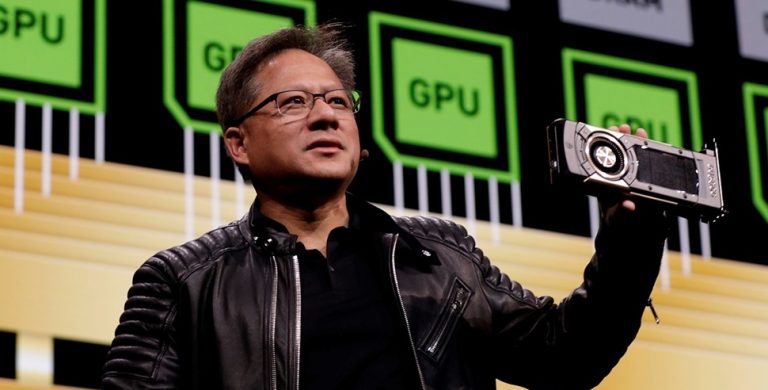
China’s State Administration for Market Regulation (SAMR) has accused US giant chipmaker Nvidia of violating its anti-monopoly law.
Nvidia is under investigation for allegedly breaching commitments tied to its 2020 acquisition of Mellanox Technologies, a global supplier of computer networking equipment. The acquisition was approved by China on the condition that Nvidia would not discriminate against Chinese firms.
Responding to the anti-monopoly probe, Nvidia expressed willingness to cooperate with regulators, stating that the company is happy to answer any questions regulators have about its business.
Nvidia said,
“Nvidia wins on merit, as reflected in our benchmark results and value to customers, and customers can choose whatever solution is best for them. We work hard to provide the best products we can in every region and honor our commitments everywhere we do business”.
Despite the company’s assurance, its stock experienced a 3% drop following the market opening on Monday, adding to a pre-market decline of nearly 2%. This minor setback comes after a remarkable year where Nvidia’s stock soared by almost 200%, fueled by an AI boom that has pushed the company’s market value to over $3 trillion, closely behind Apple.
The recent probe into Nvidia adds a new layer to the intensifying US-China tech rivalry. The probe comes as China attempts to strengthen its domestic semiconductor industry, aiming to wean itself from dependence on foreign technology and, ultimately, to compete with the United States and its allies for technological dominance.
Also, last week, in a bid to block China from acquiring cutting-edge technology that would accelerate Beijing’s military modernization, the Biden administration imposed a third round of export controls on semiconductors. The U.S. Commerce Department justified these restrictions as necessary to curb China’s Al advancements, citing potential military applications. Industry experts have noted that these measures could significantly slow China’s development of Al technologies.
China responded to these restrictions by accusing the U.S. of “bullying and hypocrisy” and has implemented counter-embargoes on critical materials destined for the U.S. The Asian country’s investigation into Nvidia could be seen as a strategic move in this tit-for-tat economic struggle, marking a new phase in the battle for dominance in the global tech industry.
Notably, China’s probe of Nvidia comes after EU antitrust regulators asked rivals and customers if the US artificial intelligence chipmaker bundles its products which may give it an unfair advantage, in a move that may lead to a formal investigation.
Responding to the EU probe, Nvidia said
“We support customer choice and compete on merit across the board. Our products are best-in-class and able to stand on their own. We support open industry standards, enabling our partners and customers to use our products in a wide variety of configurations and system designs.”
Nvidia, which has a near-monopoly with an 84% market share, far ahead of rivals Intel has in recent years attracted regulatory scrutiny from regulators in the European Union, the United States, the UK, China, and South Korea.
The company has seen high demand from customers involved in generative AI and accelerated computing for its chips. In October 2024, Nvidia’s CEO Jensen Huang described demand for the company’s AI chips as “insane”, showing the rising interest in artificial intelligence technology.
It is understood that as corporations rush to build out their AI infrastructure, Nvidia has emerged as the dominant provider of AI hardware, particularly its graphics processing units (GPUs), which are essential for AI applications.
The company’s recent investigation by China highlights the increasing vulnerability of global tech giants operating in both the U.S. and China amid escalating trade tensions. As both countries ramp up retaliatory measures, the broader implications for the tech industry, supply chains, and international trade remain uncertain.

